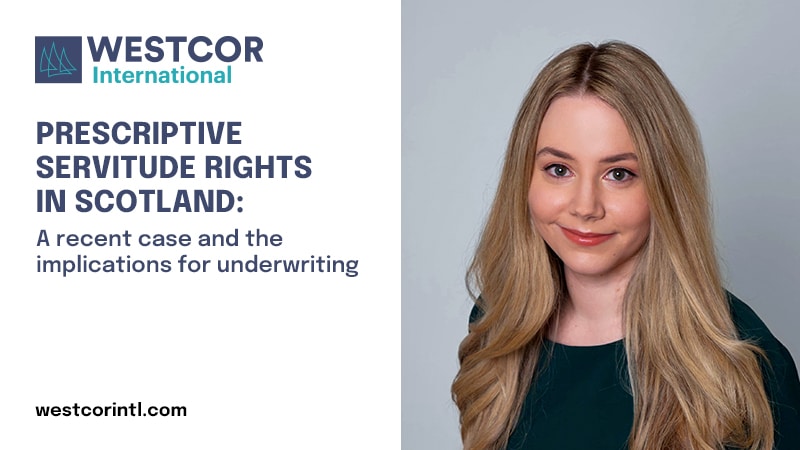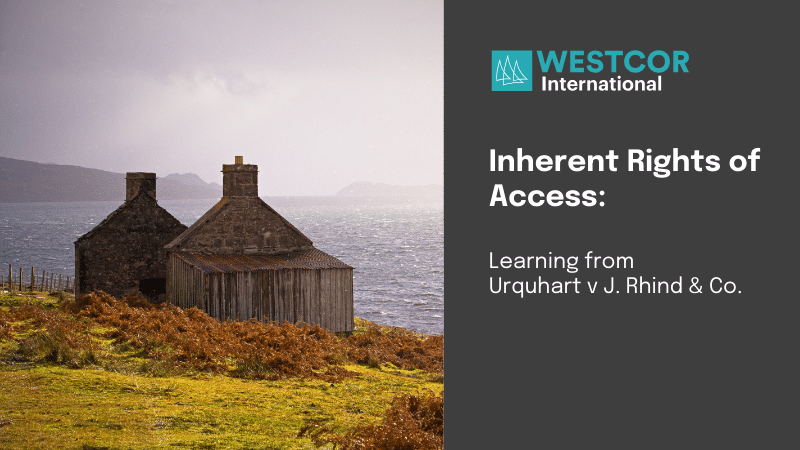Prescriptive Servitude Rights in Scotland: A Recent Case and the Implications for Underwriting
In Scotland, it is well-established that you can obtain a servitude right of access over a neighbouring property through positive prescription, provided this access is exercised openly, peaceably, and without judicial interruption for a continuous period of 20 years. However, a recent case in the Sheriff Appeal Court of Ferguson V Gregors and Fowler brought to light a potential complication concerning the use of the benefitting land when claiming a prescriptive servitude.
In this case, Mrs. Gregors, the first respondent, owned Wesleymount Farm on Church Road, California, Falkirk, since the early 1980s. Access to her property was via Church Road and across a 0.5-meter-wide strip of land owned by the appellants, the Fergusons. This route was the sole available means of access.
In 2016, a portion of the property was sold to Mr. and Mrs. Fowler, who also required access and egress via the same route. The Fowlers obtained planning permission to change the use of their plot from vacant to establish a traveller pitch, including a static caravan, a touring caravan, a hard surface and a boundary fence.
The proposed change in use and the increased traffic burden on the access route, following the Fowlers’ occupation, prompted the Fergusons to take action. They sought an interdict to prevent Mrs. Gregors from traversing and permitting, authorising or encouraging access across her property, except for normal residential or agricultural uses. Additionally, the Fergusons sought an interdict against the Fowlers to prevent them from crossing their property for business or commercial purposes and from using specific types of vehicles.
The Fergusons argued that, even if a servitude existed, the commercial vehicular aspect had negatively prescribed. However, the court disagreed. The court found that as owners of the servient tenement, the Fergusons, had the authority to control and limit the burden and extent of the servitude, but not to restrict the purpose of the traffic, i.e. by splitting the vehicular access into separate categories (residential and commercial).
This scenario is a common concern in underwriting. For instance, a seller may be confident about proving a prescriptive servitude based on their current or previous use, but a prospective buyer might intend to change the use or develop the land and so may not be able to rely on existing rights due to the increased burden.
As underwriters, we must consider the prior use and assess how the future use may intensify the burden. We need to evaluate if the intended use or development will significantly increase traffic volume or involve specific types of vehicles, such as heavy or construction vehicles and we must be mindful that such change in use may instigate a claim from the owner of the access way. This is why it is so important for us to understand the current, previous, and proposed use of the property to be insured, as this is inextricably tied to the use of the access and the burden on the servient tenement.
Underwriters at Westcor’s Glasgow office stay updated with relevant case law and legislative changes. This ensures our comprehensive understanding of the risks presented to us and enables us to create solutions for your clients.






